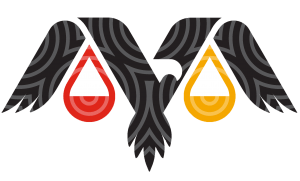The Productivity Commission today released its final report into the review of the National Agreement on Closing the Gap (National Agreement). The report’s findings highlight the disappointing and piecemeal progress on implementation of the National Agreement.
This comes as no surprise to Michael Graham, Co-Chair of Ngaweeyan Maar-oo and CEO of the Victorian Aboriginal Health Service, who has been a staunch advocate for stronger government accountability.
“We call on all governments, both Commonwealth and state, to strengthen their accountability mechanisms to guarantee progress on the four priority reforms.”
“The findings confirm that governments’ are failing to properly engage in shared decision-making. The lack of progress and transformative change mean very little when there are no consequences when governments fail to listen to the expert advice from community-controlled organisations.”
A key message in the report is that current government practices do not reflect the value of the ACCO sector. In Victoria, this is translating into missed opportunities to deliver on the aspirations for priority reform two – strengthening the Aboriginal Community Controlled sector.
Dr Jill Gallagher AO, CEO of the Victorian Aboriginal Community Controlled Health Organisation, and Health sector representative on Ngaweeyan Maar-oo, said “the Review of the National Agreement on Closing the Gap indicates that despite the best intentions, governments are still sticking with the status quo, by failing to take concrete steps to put Aboriginal health in Aboriginal hands.”
“Victoria has a long and proud history of Aboriginal Community-controlled healthcare where healthcare for the Community is delivered by the Community, and no one is turned away.”
“Aboriginal and Torres Strait Islander people established these organisations, manage the clinics, and run the services. These Community-driven organisations and their dedicated staff continue to innovate and draw on ancient Aboriginal culture to apply Aboriginal ways of being, knowing, and doing to support thriving, healthy Communities.”
“For over half a century, Aboriginal Community Controlled Health Organisations (ACCHOs) have been delivering extraordinary health and wellbeing outcomes for Communities by providing services within an environment and atmosphere where culture is celebrated. It’s time to properly invest in them. “
Lisa Briggs, Co-Chair of Ngaweeyan Maar-oo, added that “it just makes sense to have the decisions being made by people in our communities, not by politicians miles away who think they know best, because Aboriginal people are the experts when it comes to our communities, languages, cultures and caring for Country. “If governments want to close the gap, then they need to handing over some of the decision making roles, which the Victorian Treaty process is all about.”
“But where they are still creating policies and delivering services, it’s vital we have systems to ensure Aboriginal people have a full line of sight over the various programs. We know that a key focus of Victoria’s treaty process will be to build that higher level of accountability across the board.”
The report also highlights the disappointing progress on the socioeconomic targets, with only four of the 17 targets on track to be met.
Nerita Waight, CEO of the Victorian Aboriginal Legal Service and Justice and youth justice representative on Ngaweeyan Maar-oo said “Victoria continues to fail Aboriginal communities who remain overpoliced and overincarcerated.”
“Between their Closing the Gap Agreements and commitment to the Victorian Treaty process, the Victorian Government has promised a lot of change – and our people expect a lot of change. We need the Victorian Government to think bigger and be bolder. It was disappointing that the Government’s bail reforms didn’t go far enough. We are concerned that the upcoming Youth Justice Bill will also fall short of what our people have asked for.”
“We are also frustrated that there has been no progress towards implementing a Police Ombudsman or independent detention oversight. Victoria won’t reach the Closing the Gap targets it committed too if it does not go all in on these reforms.”
While the report reveals weaknesses in implementation, the recommendations provide a pathway for change, that would see the intent of the four priority reforms realised. Mr Graham welcomes the call for a fundamental re-think to the transformation of mainstream government systems and culture.
“The National Agreement requires significant structural change, and this must be driven within government. It is not just about re-thinking the way policy is developed or funding is allocated. We must see a greater effort to tackle racism in mainstream institutions, that shut us out and shut us down.”
He also called out the proposed actions to strengthen shared decision making as key takeaways from the report.
“Victoria is due to write a new Closing the Gap Implementation Plan this year, so the timing is right for the government to take these recommendations on board, especially elevating ACCO representatives to essential partners in design and decision making of policies and services”.
About Ngaweeyan Maar-oo
Ngaweeyan Maar-oo is the Koorie Caucus of the Victorian Closing the Gap Partnership Forum – the shared decision-making body for Closing the Gap implementation in Victoria. Ngaweeyan Maar-oo is made up of 13 Aboriginal Community Controlled Sector (ACCO) representatives from 14 sectors and 9 delegates from Aboriginal Governance Forums. Ngaweeyan Maar-oo is a member of the Coalition of Peaks.

